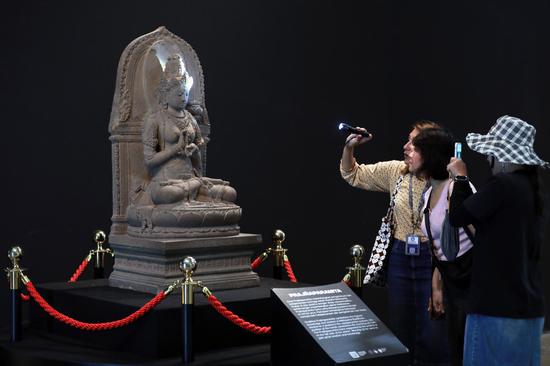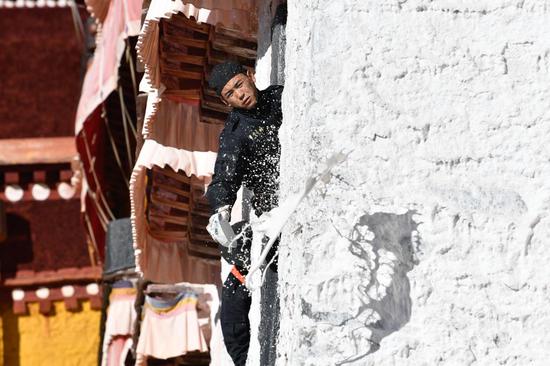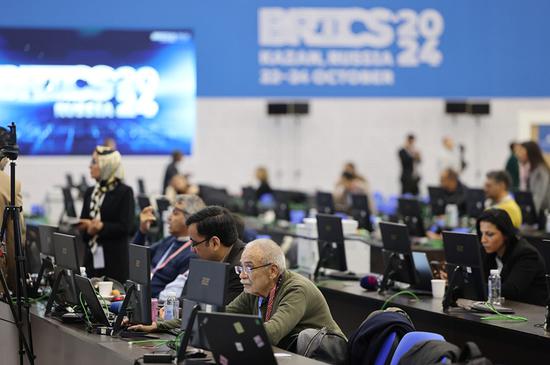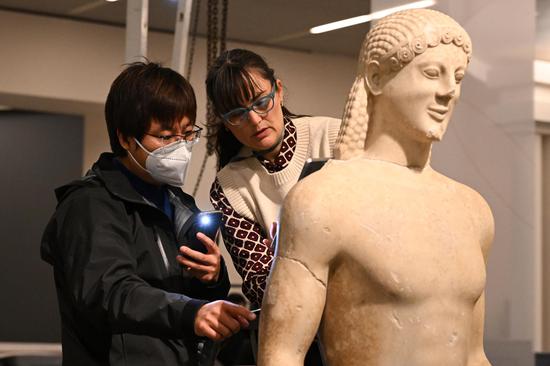Chinese authorities have shut down several social media accounts for spreading false information about the military, including fabricated stories about Chinese warships sinking foreign vessels and prolonged electronic warfare in the South China Sea, according to the Cyberspace Administration of China.
In a news release on Monday, the administration disclosed a series of cases in which some personal media accounts "speculated and fabricated false information, and engaged in speculative hype".
Personal media accounts refer to non-institutional content publishers on social media platforms such as WeChat, Weibo or video-sharing platform Douyin. They publish news or information even though they are not operated or approved by the government or any other authoritative entities.
According to the news release, the primary violations made by the owners of these self-media accounts include concocting military rumors, distorting military history, tarnishing the image of the armed forces and misinterpreting military policies.
It said that these accounts "seriously misled public perception and affected the image of the armed forces and military personnel".
The release noted that some social media accounts exploited people's patriotic sentiments by posting fake stories. For instance, two WeChat public accounts spread rumors about Chinese naval vessels sinking four foreign warships, it said.
Some accounts used splicing, editing and other techniques to create sensational military stories, fabricating incidents such as a "12-hour electronic war in the South China Sea" and "border clashes".
Additionally, the news release pointed out that some accounts, under the pretext of uncovering secrets, engaged in "historical nihilism", distorting facts about the Chinese People's War of Resistance Against Japanese Aggression (1931-45) and the War to Resist US Aggression and Aid Korea (1950-53).
For example, some accounts on the Quora-like knowledge-sharing platform Zhihu falsely claimed that "only a small portion of Japanese troops were killed by guerrilla warfare in China."
The release said that these "erroneous opinions" distorted historical facts and created misperceptions.
Meanwhile, it also said that some self-media accounts published content that tarnished the image of the military.
A user on video-sharing platform Bilibili "maliciously" posted confidential information such as the names, positions and ID numbers of active-duty military personnel, according to the CAC.
Two Douyin accounts shared a fake story about how "a son joined the army against his family's wishes, only for his mother to receive his ashes a few years later".
Other short-video publishers spread false information, claiming that "graduates from the National University of Defense Technology could not find any employer willing to hire them a year after graduation".
Furthermore, the news release highlighted that some social media accounts distorted and misinterpreted military-related policies, becoming key targets for a crackdown.
Some accounts speculated and spread false information related to the civilian personnel system, and some even cited rumors about "the military's involvement in financial wars". Others incited negative sentiments toward the military among netizens, the release said.
For example, some accounts hyped up rumors that "maintaining an army consumes massive funds", and called for "cutting 200,000 troops to ease fiscal pressure", thereby stirring up conflicts between the military and the public.
It stressed some accounts misled public opinion by making inappropriate comparisons between military and civilian universities during the college entrance examination and recruitment seasons.
The release also revealed several cases involving online shopping platforms.
Some Taobao businesses used specific military-related terms and logos to sell counterfeit products, which were labeled "military-exclusive supplies".
Certain Taobao merchants used military images without authorization to conduct malicious marketing campaigns.
Officials from the military and local authorities said they will continue to resolutely crack down on self-media accounts that engage in illegal activities related to the military, and strictly investigate and punish those who publish false information, according to the release.
They also welcomed participation and reports from relevant departments and netizens to jointly create a positive online environment regarding military affairs.


















































 京公网安备 11010202009201号
京公网安备 11010202009201号